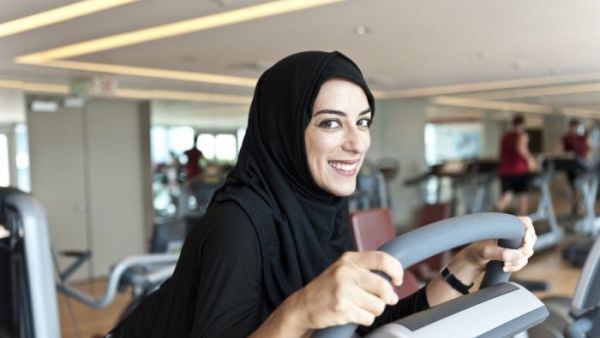Experts from Aspetar, the orthopaedic and sports medicine hospital, are offering some advice on what a balanced and smart exercising schedule looks like during Ramadan, especially to those who are fasting.
In a press statement, Aspetar said such a move aims to help people reach their personal fitness goals, whether losing fat, increasing muscle or maintain their current body weight and fitness levels.
Dr Omar al-Seyrafi, sports medicine physician at Aspetar, said the key is “balance and exercising smartly” during the holy month. Dr al-Seyrafi explained that the balance between calorie intake vs calories burn is essential to understand, as our bodies consume energy without gaining any back, which is good if we are aiming to lose weight. It can also be a great opportunity to burn the body’s extra stock of fat and carbs that the body stores as backup.
Dr al-Seyrafi also warned that not sticking to a balanced exercise regime can be risky if someone is not paying close attention to their calorie intake vs calorie burn ratio on a daily basis during fasting and can pose serious health risk.
Aspetar’s experts have developed the following handy tips for recreational athletes to consider during the holy month of Ramadan in 2019: short and mild to moderate intensity exercise sessions during the day before Iftar is an ideal time to burn fat; exercise 1-2 hours before Iftar so you can re- energize and rehydrate at Iftar time; avoid exhausting high-intensity exercises during fasting time; consider training indoor during fasting with a moderate temperature and avoid outdoor activities especially when the temperatures are high; make sure to drink enough water and fluids during the evening and night, once you have broken your fast, so your body becomes well hydrated for the following day; and eating healthy and balanced foods and avoiding fatty and high processed sugar will help to reach your goal faster and allow you to perform better while exercising.
Other tips include to consider doing intense sessions such as gym workouts, or performing your preferred sports in the evening no less than 2-3 hours after Iftar; always pay attention to any unusual or new symptoms during or after exercise and consult your doctor; and know your existing health problems such as diabetes or hypertension and exercise according to your doctor’s advice.








